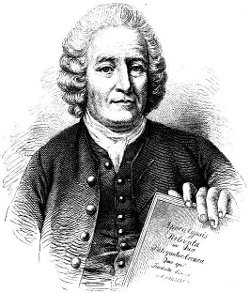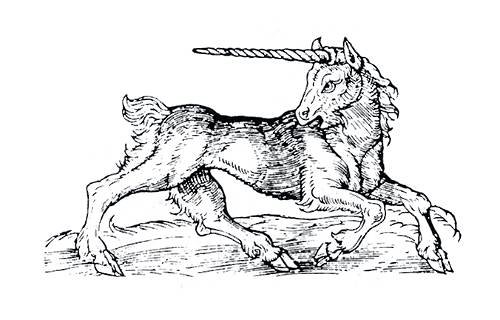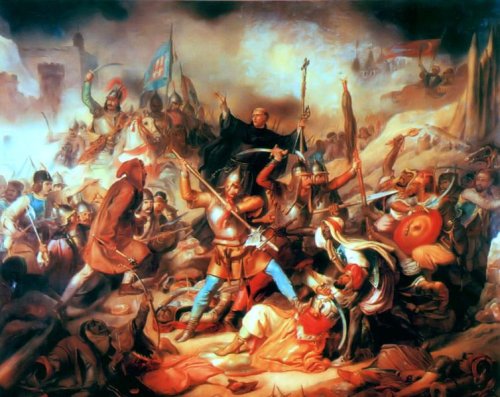- EVIAN, SEIKO, and STROH’S are all English words spelled backward.
- Can “I apologize” be false?
- 165033 = 163 + 503 + 333
- Little Wymondley, in Hertfordshire, is bigger than Great Wymondley.
- “How old would you be if you didn’t know how old you was?” — Satchel Paige
Search Results for: in a word
Private Line
In 1980, Morris Davie was accused of setting forest fires and brought to the headquarters of the Royal Canadian Mounted Police to take a lie detector test. He was left alone in a room, where a hidden camera recorded him dropping to his knees and saying, “Oh God, let me get away with it just this once.”
At trial, his lawyer objected to this evidence, arguing that it violated a Canadian law that prohibited the interception of private communications “made under circumstances in which it is reasonable for the originator thereof to expect that it will not be intercepted by any person other than the person intended by the originator thereof to receive it.”
Is God a person? The trial judge thought so — he held the videotape inadmissible and Davie was acquitted. The British Columbia Court of Appeal disagreed, however, deciding that a private communication requires an “intended human recipient.”
“In my opinion,” wrote Justice J.A. Hutcheon, “the word ‘person’ is used in the statutes of Canada to describe someone to whom rights are granted and upon whom obligations are placed. There is no earthly authority which can grant rights or impose duties upon God. I can find no reason to think that the Parliament of Canada has attempted to do so in the enactment of sections of the Criminal Code dealing with the protection of privacy.” He ordered a new trial.
Meant to Be
In 2007 Gordon Bonnet was going through some genealogical records when he ran across a marriage record for Edward DeVere Stewart and Etta Grace Staggers.
“It was only when I was putting the names in my database that I noticed something odd about them. What is it?”
Fire Alarm

On July 21, 1759, Emanuel Swedenborg attended a dinner party after returning to Gothenburg from England. He went out for a short interval and returned pale and agitated. He told the party that a fire had broken out in Stockholm, 250 miles away, and that it was spreading quickly. He said it had already destroyed the house of one of his friends, whom he named, and that his own house was in danger. Two hours later he exclaimed, “Thank God! The fire is extinguished the third door from my house.”
The following morning the governor questioned Swedenborg, who provided a description of the fire, including how it had begun and ended, and word spread throughout the city. Two days later a messenger arrived from Stockholm bearing letters that confirmed Swedenborg’s account, and a royal courier brought news reporting the extent of the fire, the houses it had damaged and destroyed, and the time it was put out. All confirmed Swedenborg’s description.
“What can be brought forward against the authenticity of this occurrence?” wrote Immanuel Kant, who elsewhere criticized Swedenborg’s mysticism. “My friend who wrote this to me, has not only examined the circumstances of this extraordinary case at Stockholm, but also, about two months ago, at Gottenburg, where he is acquainted with the most respectable houses, and where he could obtain the most authentic and complete information, as the greatest part of the inhabitants, who are still alive, were witnesses to the memorable occurrence.”
“Capture of a Whale in the Thames”
A curious old tract in the British Museum, bearing the date of 1658, gives an account of a wonderful capture of a whale in the Thames, not far from Greenwich, in the month of June of that year. The sailors in the river were, of course, anxious to secure the huge monster who had been so rash as to invade our shores; but they found no slight difficulty in despatching it. All sorts of swords, axes, and hatchets, and even guns were brought into the service; but nothing effectual could be done till some one’s ingenuity suggested striking a couple of anchors into the creature’s body. By these it was held fast, and very soon bled to death. Hundreds of people flocked to see the monstrous stranger, and among others went Evelyn, author of the ‘Diary,’ who has left us a curious account of it. It was of no contemptible size, being fifty-eight feet long, twelve feet high, fourteen feet broad, and measured two feet between the eyes.
— The World of Wonders, 1883
Hoofbeats

When I think of a unicorn, what I am thinking of is certainly not nothing; if it were nothing, then, when I think of a griffin, I should also be thinking of nothing, and there would be no difference between thinking of a griffin and thinking of a unicorn. But there certainly is a difference; and what can the difference be except that in the one case what I am thinking of is a unicorn, and in the other a griffin? And if the unicorn is what I am thinking of, then there certainly must be a unicorn, in spite of the fact that unicorns are unreal. In other words, though in one sense of the words there certainly are no unicorns–that sense, namely, in which to assert that there are would be equivalent to asserting that unicorns are real–yet there must be some other sense in which there are such things; since, if there were not, we could not think of them.
— G.E. Moore, Philosophical Studies, 1922
Season’s Greetings
Comes Christmas merry? Hungry birds; no bright berries;
Rents high, not paid; long bills; empty barns, no peace and prosperity.
Read this backward and it becomes:
Prosperity and peace; no barns empty; bills long paid;
Not high rents; berries bright; no birds hungry; merry Christmas comes.
J.A. Lindon composed the following verse, in which the first line, the first word of each line, and the nth word of each nth line spell the same message:
A merry Christmas and a happy new year!
Merry, merry carols you’ll have sung us;
Christmas remains Christmas even when you are not here,
And though afar and lonely, you’re among us.
A bond is there, a bond at times near broken.
Happy be Christmas then, when happy, clear,
New heart-warm links are forged, new ties betoken
Year ripe with loving giving birth to year.
One Solution
Beset with writer’s block, Robert Benchley typed the word The, thinking it “as safe a start as any.”
Then he left for an hour with friends.
On returning to his room he regarded the solitary word, alone on its expanse of blank paper.
He typed hell with it and “went out happily for the evening.”
“The Siege of Belgrade”

An Austrian army, awfully arrayed,
Boldly by battery beseiged Belgrade;
Cossack commanders cannonading come,
Dealing destruction’s devastating doom;
Every endeavour engineers essay
For fame, for fortune, forming furious fray;
Gaunt gunners grapple, giving gashes good;
Heaves high his head heroic hardihood;
Ibraham, Islam, Ismail, imps in ill,
Jostle John, Jarovlitz, Joe, Jack, Jill,
Kick kindling Kutosoff, kings’ kinsmen kill;
Labor low levels loftiest, longest lines;
Men marched ‘mid moles, ‘mid mounds, ‘mid murd’rous mines.
Now nightfall’s near, now needful nature nods,
Opposed, opposing, overcoming odds.
Poor peasants, partly purchased, partly pressed,
Quite quaking, Quarter! quarter! quickly quest.
Reason returns, recalls redundant rage,
Saves sinking soldiers, softens seigniors sage.
Truce, Turkey, truce! Truce, treach’rous Tartar train!
Unwise, unjust, unmerciful Ukraine!
Vanish, vile vengeance! Vanish, victory vain!
Wisdom wails war — wails warring words. What were
Xerxes, Xantippe, Ximenes, Xavier?
Yet Yassey’s youth, ye yield your youthful yest,
Zealously, zanies, zealously, zeal’s zest.
— William T. Dobson, Literary Frivolities, Fancies, Follies and Frolics, 1880
Scale Degrees
Suppose that in one night all the dimensions of the universe became a thousand times larger. The world will remain similar to itself, if we give the word similitude the meaning it has in the third book of Euclid. Only, what was formerly a meter long will now measure a kilometer, and what was a millimeter long will become a meter. The bed in which I went to sleep and my body itself will have grown in the same proportion. When I wake in the morning what will be my feeling in face of such an astonishing transformation? Well, I shall not notice anything at all. The most exact measures will be incapable of revealing anything of this tremendous change, since the yard-measures I shall use will have varied in exactly the same proportions as the objects I shall attempt to measure.
— Henri Poincaré, Science and Method, 1908
